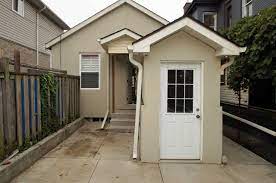Everything You Need to Know About Earnest Money
Within the realm of real-estate purchases, earnest money functions as a crucial factor that emphasizes the severity and determination of both buyers and sellers. Also known as a “very good religious beliefs down payment,” earnest money is a amount of earnest funds offered by the consumer towards the owner being a illustration showing their goal to get your property. This settlement is usually produced soon after the provide to purchase is approved, marking an initial step towards completing the purchase.
Purpose and Value
The main purpose of earnest money is to demonstrate the buyer’s candor and commitment to the purchase agreement. By putting a monetary put in, the consumer signs to the owner that they are intent on going forward with the transaction and have a vested fascination with securing your property. This commitment helps reassure the owner that the customer is not as likely to back from the offer without reasonable good reasons, thereby lowering the seller’s risk and skepticism.
Safety for Vendors
For vendors, earnest cash serves as a method of security against possible deficits accrued because of a buyer’s drawback in the purchase. When a retailer allows a proposal and usually takes your property off the marketplace, they forego other prospective buyers and options. Earnest money provides settlement just for this threat, since it compensates the owner for the time the house was off-industry and most likely any costs sustained through the purchase process.
Quantity and Downpayment Process
The amount of earnest money needed can vary depending on a number of factors, including local real estate property customs, the investment value of your property, and negotiations on terms in between the shopper and seller. Normally, earnest cash is around 1Percent to 3Per cent of the purchase cost, though greater quantities may be requested for more competitive trading markets or greater-value qualities.
As soon as the supply to buy is recognized, the earnest money is settled into an escrow profile held from a neutral alternative party, say for example a name company or property lawyer or attorney. This makes sure that the funds are securely presented till the shutting down of your deal or any other given conditions outlined from the buy arrangement.
Circumstances and Contingencies
The phrases regulating the earnest funds put in are generally defined inside the buy agreement and might involve different contingencies that protect the buyer’s pursuits. Common contingencies involve loans contingencies, which allow the purchaser to take out from your acquire should they be not able to have a mortgage, and evaluation contingencies, which allow the buyer to renegotiate or take away in line with the results of property assessments.
Solution of Disputes
In situations where disagreements occur across the earnest money down payment, the relation to the investment agreement and native property laws and regulations usually determine how these disputes are settled. When the shopper defaults around the deal without the need of valid reasons specified in the contract, the vendor could be entitled to retain the earnest dollars as settlement for your violation. However, if the seller breaks down to meet their obligations under the agreement, the consumer might be qualified for a reimbursement in the earnest money.
Bottom line
Basically, earnest cash has a pivotal function in actual residence purchases by exhibiting the dedication of both sides and delivering fiscal defense against possible dangers. By knowing the function, procedure, and implications of earnest money deposit, sellers and buyers can get around the intricacies of property purchases with greater assurance and clearness.


